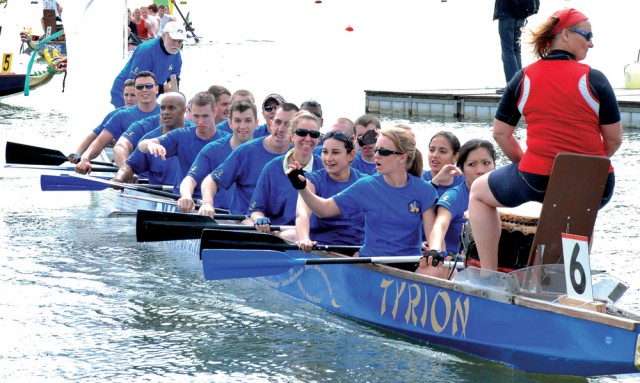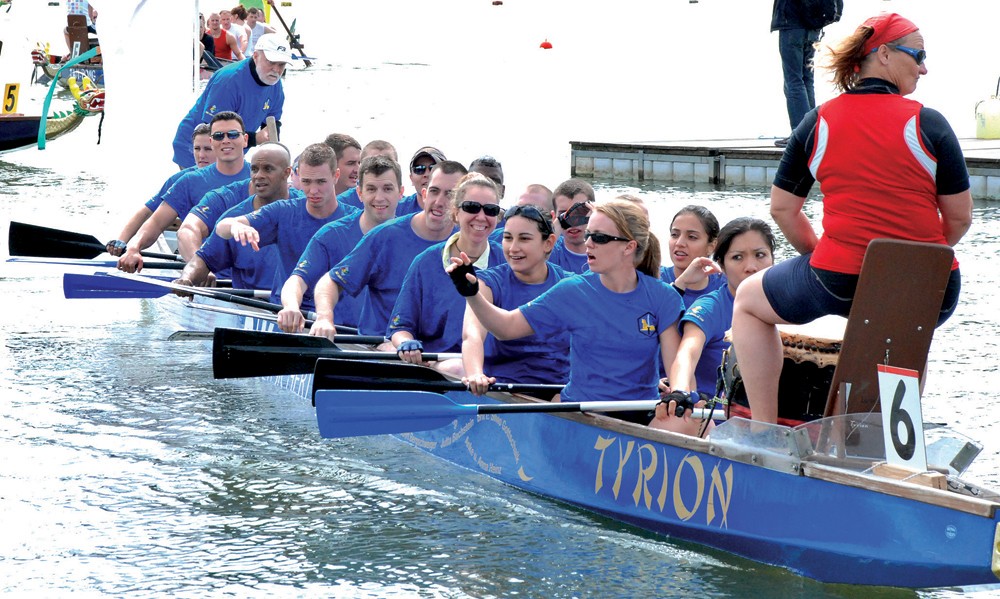WIESBADEN, Germany - Lesson one: Dragon boat racing is won at the start. Lesson two: Paddlers need to be in sync.
Lesson three: The sport of racing a 39-foot-long canoe is a lot harder than it looks.
"You have to burn the movements into your brain," said Gerd Stinner, a six-year veteran of coaching dragon boat teams in the Wiesbaden area and coach for the 66th Military Intelligence Brigade's team the Dagger Dragons.
The 21-Soldier team competed in the Schierstein Harbor dragon boat races July 11 and 12. The Dagger Dragons placed third in the F category.
Watching as the professional paddlers - yes paddlers, not rowers - walked down the city streets approaching the harbor, Lt. Col Ivory Freeman of the 66th MI Brigade admitted the scene was a little intimidating.
"But we like to be competitive just because we're Army folk," said Freeman.
The skills needed to accelerate a two-ton dragon boat with crew are "special and coordinated," said Stinner.
Relying on a drummer at the front of each boat to pound out the heartbeat or cadence, paddlers synchronize their movements in order to accelerate the long, narrow boat adorned with a dragon's head and tail. First the reach and catch, then the upper arm drive, followed by the release and finally the recovery. The motions are exact and involve coordinating a variety of muscles in the arms and lower back.
"I thought 'I'm good. I go to the gym. I'm in the Army,'" said Sgt. 1st Class Claudia Twiss, with 66th Military IntelA,A!ligence Brigade. "But after the first day, the soreness. I really did rethink it."
Dagger Dragons had six 90-minute practices in preparation for the festival races. Though entered in what is known as the Fun Category, the group competed against teams that have practiced all year for the event.
"Yes for the first practice they don't know anything and that was a real chalA,A!lenge," said Coach Stinner.
First of all, dragon boats use paddles not oars, and dragon boaters are called paddlers and not rowers.
Second, every cast of said paddle includes four different movements. Synchronizing the crews' movements is important not only for speed but for form - to avoid looking like a many-legged caterpillar.
Third, dragon boat racing really is won at the start. Stinner explained that the first 10 to 15 seconds of a race when crews are building up momentum and setting the pace is crucial to a race. Moving like a team is paramount. For the 66th MI team, that wasn't so tough.
"We've been to war," said Twiss. "This is nothing."


Social Sharing